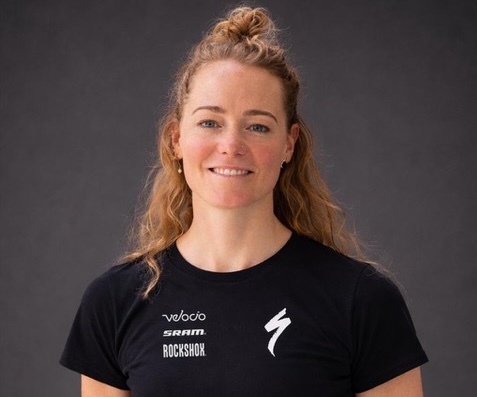US 'cross growth: top-down or bottom-up?
Promoters use different paths to achieve record participation
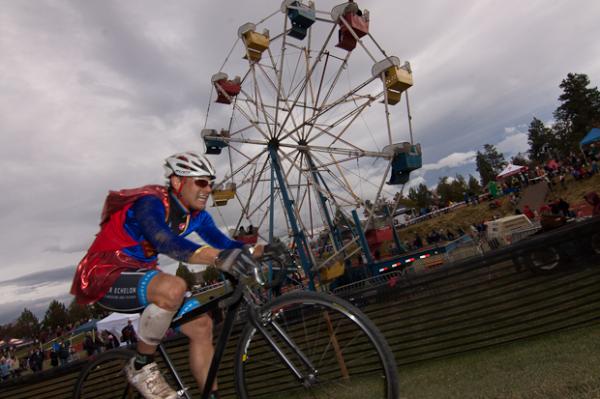
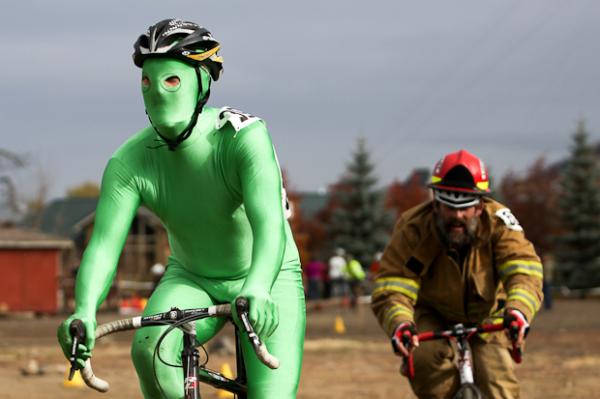
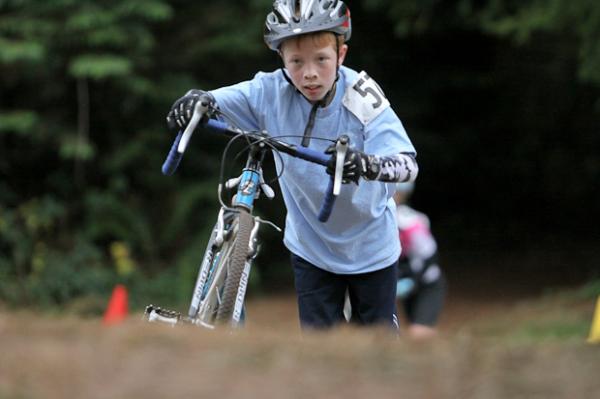
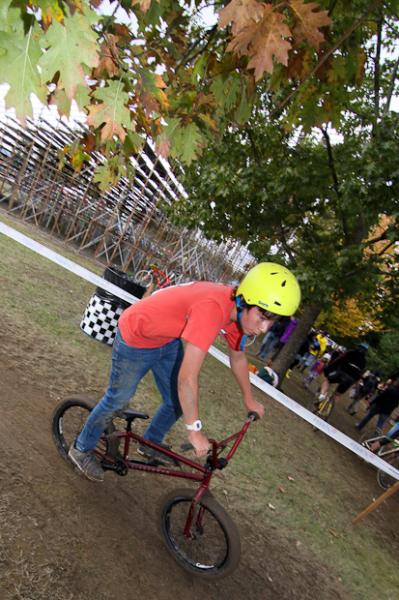
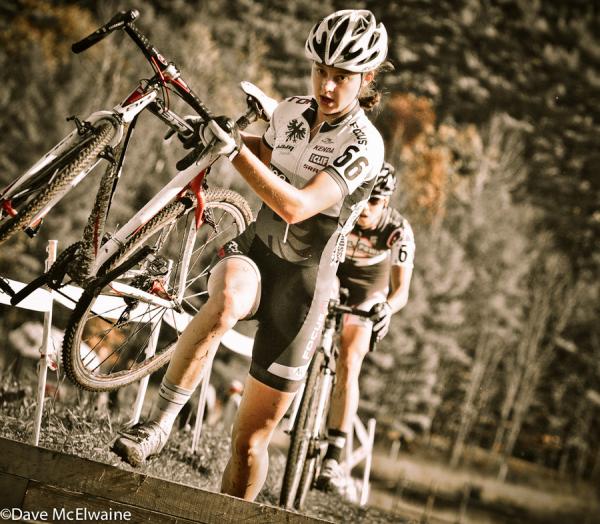
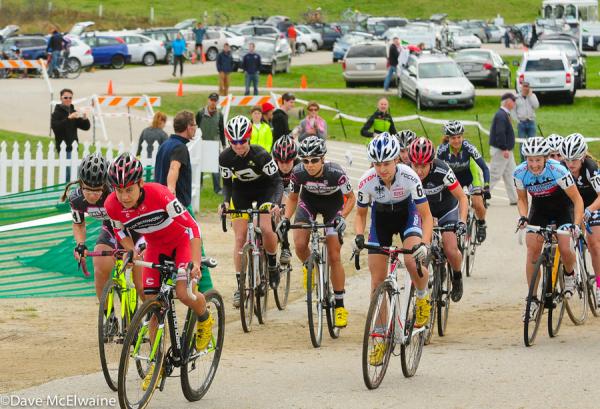
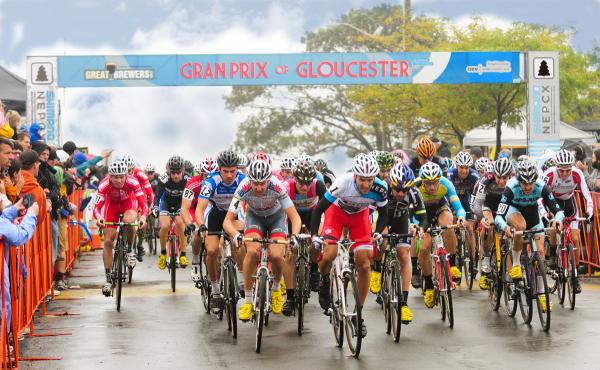
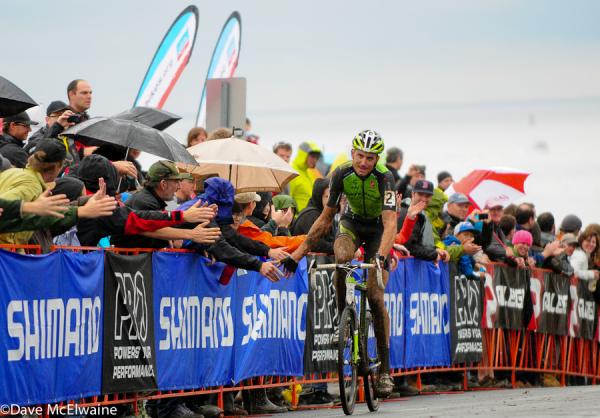
For every Elite US cyclo-cross racer climbing through the UCI rankings toward the top of the world's heap, there is an army of devoted amateurs, weekend warriors and casual 'crossers quite literally wearing in the path before the them.
A thriving recreational culture helps find and feed the riders who grow into regional, national and international champions in any sport. In US cyclo-cross the amateur riders who tear up and wear in the course before the Elites come out aren't simply creating a huge talent pool to draw from, their participation helps pay for whole elite show that follows
Entry fees from amateur skill- and age-graded categories throughout the day are often a crucial part of the income, along with sponsorship, that pays for venues, staff, officials, governing body fees and myriad other expenses required of the professional events.
That fact has always been a bone of contention for Oregon cyclo-cross organizer Brad Ross, a veteran of multiple UCI races and national championships who has overseen the Portland Cross Crusade series' into the largest grassroots cyclo-cross series in the world. The series regularly draws more than a 1,000 riders to races, having topped out last year just shy of 1,500 riders for the series opener at Alpenrose Dairy.
Different approaches add to sports' growth
"I've always sort of felt that if you want to put on a UCI C1 race so Todd Wells and Ryan Trebon can bank a bunch of UCI points, you should be able to afford to just do that without having entry fees from lower categories as your crutch for your main bank account for that," Ross said this week after having watched more that 1,400 people compete at the 2012 Cross Crusade series opener on October 7.
Ross said he believes that kind of financial structure can lead to a situation where promoters see grassroots races as a means to an end, an attitude that can lead to less attention on the product delivered for the entry fee paid, and eventually to smaller grassroots turnouts.
The latest race content, interviews, features, reviews and expert buying guides, direct to your inbox!
"I've heard too many other race promoters around the country talk about age-group riders and lower category amateur riders as sort of a necessary evil so they can put on an elite race," Ross said. "What they really want to do is put on an elite race for the pro guys, and all the other races are sort of a necessary evil because they need the money."
But long-time East Coast cyclo-cross racer and organizer Adam Myerson has a different view about what separates the record-setting grass roots racing on the West Coast with the UCI-heavy events he promotes in New England. Myerson believes each style of promoting plays a role in the big picture of cyclo-cross growth and development in the US.
"I think there are different ways of approaching things," Myerson said. "And you can compare the Cross Crusade with the Verge series: two very valid approaches to the development of the sport, and each serves the personality of its customer base in the best way possible."
Myerson said his philosophy has always been aimed at developing the top end of the sport, and it's a good fit for the region that has along tradition of producing some of the country's top 'crossers. "We're turning out professional level riders at the elite level, and that's always been the goal of our regional series. At the end of the day, it was meant to be professional development. It's a top-down approach as opposed to a bottom-up approach."
Zach McDonald, a 21-year-old phenom from Bainbridge Island, Washington, and a product of the Seattle cyclo-cross scene, benefited from that approach when he won his first ever UCI race at the Providence Cyclocross Festival, which is part of the New England Professional Cyclocross series that Myerson helps organize.
"And so that's what happens on the West Coast," Myerson said of McDonald's decision to go for the UCI points in Providence rather than racing Seattle's marquee StarCrossed event, which offered no UCI points this year. "You get to a point where you have to start leaving your scene if you want to compete at the next level."
Indeed, many of the faces at the Cross Crusade last weekend – where Canadian national champion Chris Sheppard (Rocky Mountain Bicycles) dueled Barry Wicks (Kona) to a win in the men's race and 'cross newcomer Jade Wilcosxon (Optum Pro Cycling) beat 2011 overall winner Serena Bishop Gordon (Silverado Gallery-Sunnyside Sports) in the women's event – will be absent this weekend as they head for Colorado and the US Gran Prix in Fort Collins.
Focusing on the local scene
But it's likely that Ross will hardly notice the loss of the pro riders in the Elite ranks. He'll be focused on the 1,000-plus riders who will show up for the second race of the Cross Crusade at a high school in Rainier.
"We put on one of the very first UCI races in the United States after the Super Cup went down in flames," Ross said. "It was expensive. But here again it wasn't a big priority. We did it because we thought it would be fun. We put on a national championship because that was a feather in our cap and it brought a lot of visibility to Oregon. But that's not really what we're about."
Ross said that what he and other like-minded Oregon promoters have been about is simply growing the participation and interest in the sport within the state of Oregon. Although the Cross Crusade participation numbers have leveled off over the past couple of years, other Oregon races have experienced the kind of growth the Cross Crusade saw in the late 1990s, when participation jumped more than 25 percent a year.
The Grand Prix Tina Brubaker, a new Saturday series that has popped up around Portland, regularly draws 500-600 people. A Wednesday night series at Alpenrose drew nearly 600 recently. Bend now has several 'cross series throughout the season. Eugene also hosts a series, and several new one-day races seem to pop up each year.
Wicks, a former USGP overall winner who went to college in Corvallis, Oregon, said he competed in his first-ever cyclo-cross race in 1996 at Alpenrose as part of the Cross Crusade.
"There was probably like 200 people here," he said while surveying the boisterous crowd and packed expo area last weekend in Portland. "Now it's 10 times bigger than that. Now there's 2,000 people here. Just rolling up here today I was just blown away by the number of people."
That growth and success of the Cross Crusade flows from its accessibility for the amateur racer and beginner, Ross said. The primary goal has always been to deliver a fun product for everyone who pays an entry fee, whether they've been lapped a few times or win their category.
Myerson, whose UCI-ranked Verge series boasts 500-800 riders on each day it its weekend format, admitted the racing there is generally a bit more serious that at the Cross Crusade, which hosts an infamously rowdy costume race in Halloween weekend, but that it fits his New England customer base well and does a good job of filling its role in the spectrum of US 'cross.
Providing a pro experience
"We've felt like if we could give people the opportunity to play like a flag football game on the field before the Patriots play, if we run a professional event and then allow the amateur races to compete on that same field and benefit from that same level of production, that that would be exciting for them," he said. "We believe that would be enjoyable for them. So we run a pretty tight ship, and people take things kind of seriously here, but we're New Englanders. That's how we live our lives in general, so that's a good match for us."
The ship is definitely less tight in Oregon, where racers are known to show up in costume even when it's not Halloween. And because Oregon races are sanctioned through the Oregon Bicycle Racing Association and not the UCI or USA Cycling, organizers can be creative about the rules and allowing even more people to try out 'cross. Ross believes the decision to allow people to try out the sport before they run out and by a 'cross bike is just another reason it has taken off with the grassroots there.
"We decided very early on that you were allowed to choose your weapon of choice," Ross said. "A very long time ago we wrote in one of our fliers, just completely jokingly, that if you wanted to ride a unicycle you could, and some idiot actually took us up on it and brought a unicycle out. Now we have an actual legit unicycle category."
While it's doubtful the world will soon see any Unicyclo-cross world or national champions, Wicks said having a strong local series like Cross Crusade is crucial to getting people excited about the sport before developing that next level.
"You have to have success locally and then you make that jump to the national scene," Wicks said. "That's really important. You just look at the riders now at the top of the sport, and probably 50 percent of the guys in the top 10 came out of the Northwest. And I think that's a result of races like the Cross Crusade and everything around here."
Growth is Heading North
The grassroots attitude in Oregon appears to have moved to the north with similar success. Seattle's grassroots scene is also thriving, and like Portland, is doing so outside the traditional path provided by the UCI and USA Cycling. Terry Buchanan, race director for Seattle's six-race MFG Series, said organizers made the decisions when they began four years ago to forgo sanctioning.
"We wanted to be able to run events that were more accessible for juniors and beginners," he said. "So we made that decision, and it's been a good decision for us as far as participation and a lot of things."
Buchanan said so far this year the MFG series has broken participation records at each venue and has set a new all-time attendance record each of the past two weeks. He expects the trend to continue. "Traditionally our biggest event is our last event at Woodland Park right in the heart of Seattle. We were 950 last year there, but the last two weeks we've done 955 and then 1,003 for StarCrossed. It's great."
The growth of – and interest in – cyclo-cross in the US will culminate in February when the very Elite of the sport come to Louisville for the first-ever UCI Cyclocross World Championships in the US, but it took a groundswell of support from promoters, organizers, officials and participants at every level of the sport to wear in the path along with way. Despite that, Ross said assigning credit for that success is really pretty easy.
"We can't really take credit for the popularity of the sport," he said, "because it's a pretty damn cool sport in the first place."
Growing up in Missoula, Montana, Pat competed in his first bike race in 1985 at Flathead Lake. He studied English and journalism at the University of Oregon and has covered North American cycling extensively since 2009, as well as racing and teams in Europe and South America. Pat currently lives in the US outside of Portland, Oregon, with his imaginary dog Rusty.
